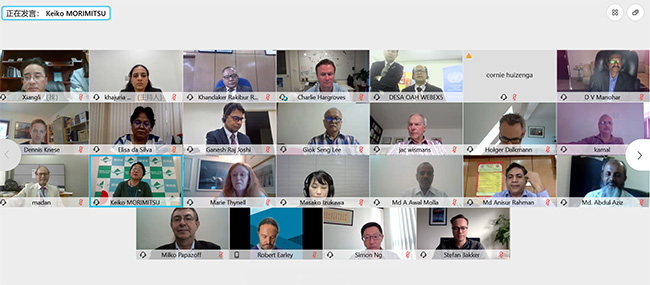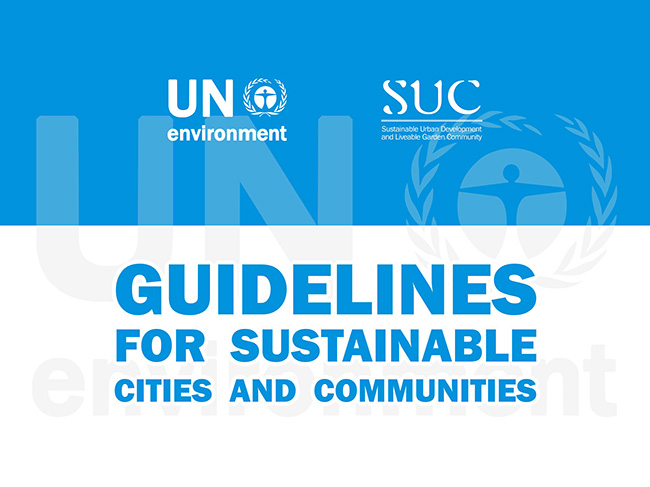SUC Institute delivered the ¡°Chinese Experience¡± at the Intergovernmental 13th Regional Environmentally Sustainable Transport Forum in Asia
The Intergovernmental 13th Regional Environmentally Sustainable Transport Forum in Asia(13th Regional EST Forum in Asia) was held virtually on 10-11 November 2020. Over 500 participants including representatives from multiple UN agencies, high-level government officials and mayors from Asia-Pacific countries, international experts, and figures from the business community attended the forum.
The Forum was co-organized by the Ministry of the Environment, Government of Japan, the United Nations Economic and Social Commission for Asia & the Pacific, the United Nations Centre for Regional Development of Division for Sustainable Development Goals/the United Nations Department of Economic and Social Affairs, co-sponsored by Asian Development Bank (ADB), German International Cooperation (GIZ), BWF, ReCAP, and supported by China SUC Institute, Jiacui Environmental Promotion Center, , UN-Habitat, UNCTAD, World Health Organization ( WHO), World Bank (WB), OECD, Wuppertal Institute, etc..

The Regional EST Forum in Asia is an intergovernmental forum led by the UN. Since 2017, SUC Institute has been serving as a supporting organization of the event, holding the Side Event on Sustainable Cities and Communities and organizing Chinese delegations to attend the forum.
At the 13th Regional EST Forum, Executive Director of China SUC Institute Li Xiang was invited to deliver the Chinese experience in building smart, liveable and sustainable cities as one of the panel members to the Joint ESCAP-UNCRD Policy Dialogue 2: Mayors¡¯ policy dialogue on urban mobility and smart cities.

Li Xiang introduced the indicators of the Guidelines for Sustainable Cities and Communities: Evaluation Criteria, Management Process and Key Action Points(SUC Guidelines) and shared several cases on ¡°Transportation Accessibility and Sustainable Urban Development¡±. He also pointed out that before the SUC Guidelines was officially released as an official document of the UN in 2019, a number of representative Chinese cities and communities were selected as pilots to implement the Guidelines. In 2021, a comprehensive summary will be delivered on the practices and results gained at the early stage of each pilot city and community and the ¡°SUC Decade of Action¡± Initiative will also be launched. Judging from the progress monitored, most pilot cities have made important breakthroughs in key areas, and are expected to achieve an average of about 40 indicators and goals during the same period. Li believes that this will be a hard-won achievement which shall provide crucial reference for other developing countries in implementing SDG11. The results will be shared with the international community through the UN and other important platforms home and abroad.
Opinions and ideas were also exchanged at the forum on the SUC Decade of Action plan and related projects to be implemented in 2021. |



